CLASSES
Dr. Gruber enjoys teaching on topics ranging from emotion, science of happiness, psychological disorders. She is delighted to co-author Introduction to Psychology with David Myers and Nathan DeWall. She enjoys disseminating the science of emotion and mental health, and has created a freely available interview series in emotion and mental health.
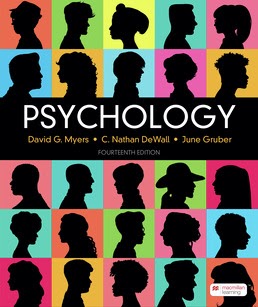
Introduction to Psychology
June is thrilled to join the author team at Macmillan with David Myers and Nathan DeWall for the recent editions of Psychology (14th edition, 2024), Exploring Psychology (13th edition, 2025), and Psychology in Everyday Life (7th edition, forthcoming). She is passionate about teaching students and believes psychological science is one of the most powerful opportunities to ignite curiosity, shape critical thinking, and foster scientific literacy for students and the public alike. Check out the news update discussing June Gruber joining the Macmillan author team.
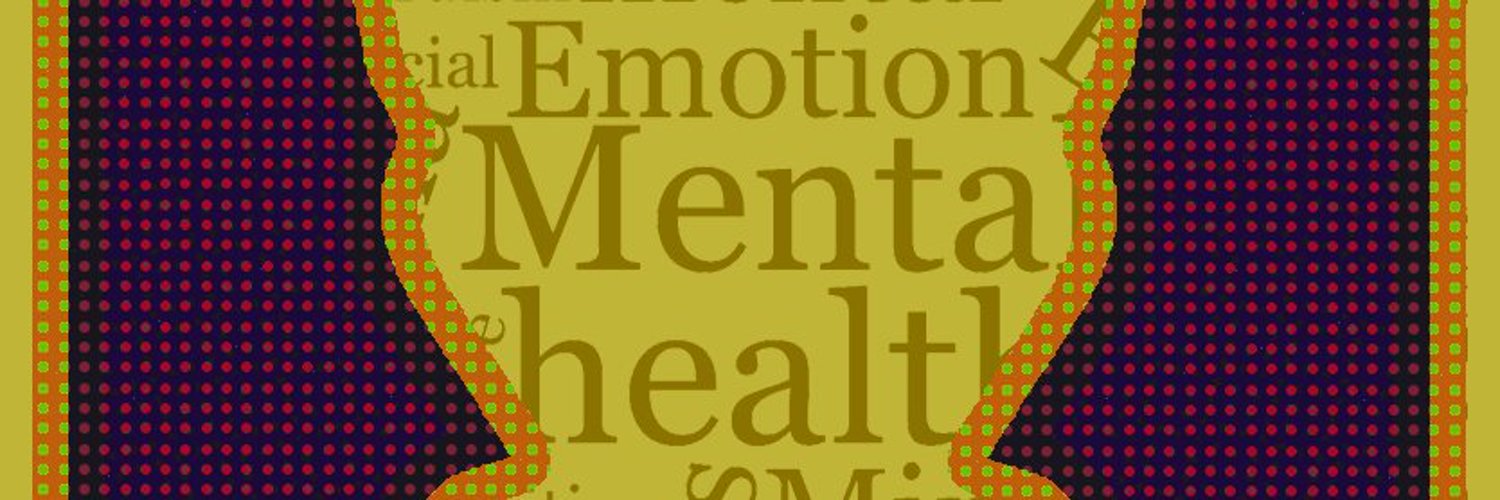
#TalkMentalIllness Interview Series
#talkmentalillness curates the interviews from the Mental Health Experts series into an accessible learning experience that will help you have conversations about mental health. Talking about mental illness is both the content and desired outcome of this course, as you will use what you learn from my interviews with mental health experts to guide your own discussions about mental health challenges and treatments with family members, friends, colleagues, and other people in your life. The courses begins by presenting a core set of definitions for mental illness and analyzing the stigma associated with it. We will then apply these topics to specific psychological disorders, including anxiety and mood disorders, eating disorders, suicide, substance use, and psychosis. We will then consider how these issues disproportionately impact marginalized groups and communities of color. The course concludes by considering innovative approaches to psychological treatments and how the pursuit and science of happiness inform mental health and wellness. Check out the free Coursera Course.
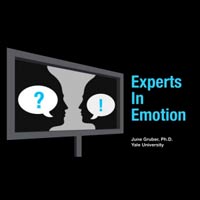
Experts in Emotion Interview Series
The Experts in Emotion series provides a unique opportunity to explore the mysteries of human emotion guided by some of the world's foremost experts on the subject, ranging from distinguished academics to leading figures behind social media services like Facebook. In addition to tackling central questions such as what emotions are, why we have them, and how our understanding of them can lead to happier and healthier lives. You'll also hear first-hand about what first led these key players to study emotion and what they see as the most exciting frontiers ahead. The Expert in Emotion series is part of a broader educational mission to share the study of human emotion beyond the walls of the classroom, to reach students and teachers alike, both locally and globally, through the use of technology. You can browse the Full Interview List and view the full course and accompanying interviews freely at the Yale University's YouTube Course Channel.
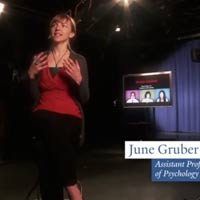
Human Emotion
This course will introduce students to a diverse array of theoretical and empirical issues related to the study of human emotion. Some questions the course will address include: What are our emotions? What purpose do they serve? How do emotions relate to our thoughts, memories, and behaviors towards others? What happens when our emotional responses go awry? Although these questions date back to early philosophical texts, only recently have experimental psychologists begun to explore this vast and exciting domain of study. The course will begin by discussing the evolutionary origins of distinct emotions such as love, anger, fear, and disgust. We will ask how emotions might color our cognitive processes such as thinking and memory, emotion and the brain, development of emotions in childhood, and how emotions shape our social relationships. We will also consider how these methods can be applied to studying mental illness in both children and adults. We conclude by studying the pursuit of happiness and well-being, trying to understand what makes us happy.

Psychological Disorders
This course provides an in-depth overview of the scientific study of psychological disorders, aiming to familiarize you with the field's terminology, concepts, and evidence-based findings. We will explore key topics, including the definition of psychological disorders, classification and assessment methods, the etiology (causes) of mental disorders, and overview of treatment approaches. The course begins with foundational lectures to establish a shared framework for understanding psychological disorders, followed by an in-depth examination of specific clinical disorders and their psychological models and mechanisms. We will conclude by discussing strategies to optimize mental health and promote clinical outreach. By the end of the course, you will have a deeper understanding of the signs and symptoms defining mental disorders, diagnostic and assessment processes, causal models of and mechanisms underlying psychological disorders, and the strengths of different treatment approaches. Additionally, we will address the stigma surrounding mental illness, emphasizing evidence-based strategies to reduce it and foster greater awareness.

Social and Affective Psychological Science
TThis graduate seminar will provide a general overview of theoretical issues and methods in the fields of social and affective psychological science. Course will cover core empirical issues and methods in affective science (e.g., evolutionary theories of emotions; cognitive and behavioral aspects of emotion; expression of emotion; neurophysiological mechanisms; and psychopathology and emotion) and integrate and apply these to fundamental social psychological processes (e.g., empathy, cooperation and kindness, interpersonal regulation, relationships, culture, and social cognition). The focus throughout will be on empirically tractable ideas. The course is intended for clinical psychology graduate students. This course also fulfills the APA Discipline Specific Knowledge requirements in social and affective bases of behavior.
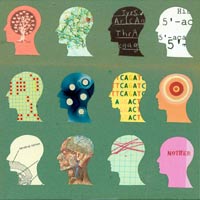
Adult Psychopathology
This graduate seminar will provide a general overview of theoretical issues and methods in the fields of clinical science, with a focus on adult psychopathology. Course will cover core empirical issues and advanced methods in psychopathology (e.g., conceptualization and classification of psychopathology, causal models of psychopathology; and different approaches to experimental design and treatment). The course will begin with a core set of foundational lectures focused on developing a common language for talking and thinking about psychopathology. We will next consider and apply these topics to specific clinical disorders and consider their treatment. The course will conclude by considering approaches to optimize mental health and promote clinical outreach efforts. As evidenced by the quote on the first page of this syllabus, throughout the course we will directly and indirectly address potential stigma surrounding mental illness and scientifically based approaches to ameliorate it. The format will include discussion of scientific articles, weekly readings and written responses, and a brief paper due at the end of the course. Attendance and participation are required (but please contact me if you need flexibility during this highly unusual semester). The focus throughout will be on empirically tractable ideas. The course is intended for clinical psychology graduate students. This course also fulfills the APA competency requirement in psychopathology.
Donate
Donate to support research and education on positive emotion and mental heatlh directly here:

Twitter Feed









